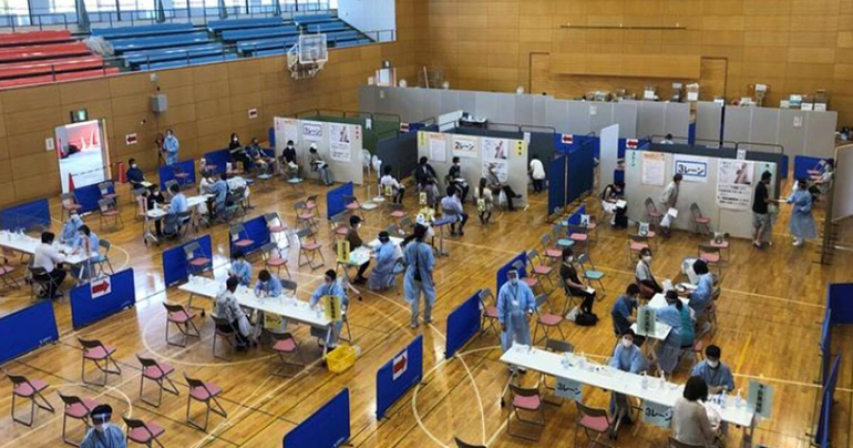Tamio Hayashi, 77, doubted he could ever navigate the internet systems set up to register for COVID-19 vaccines across most of Japan.
He hated the idea of using the "troublesome" systems that have broken down and befuddled other older residents, hobbling Japan's inoculation push.
Luckily, local officials in his small, northeastern town helped him through the red tape and he got his shots - a rarity in Japan, where the authorities are racing to inoculate the vulnerable elderly population before the start of the Summer Olympics in just six weeks.
"This way is great," Hayashi told Reuters after he and his wife got their second doses at a local gymnasium. "You just get a notice that says come on such-and-such a day."
Soma, a rural city 240 kilometres (150 miles) north of Tokyo that was devastated by the 2011 earthquake and tsunami, has surged ahead of most of the country in vaccinations by heeding lessons learned from the catastrophe of a decade ago.
Japan lags far behind other advanced economies in vaccinating its people - 12% have received at least one shot, according to a Reuters tracker, compared to France, the next lowest in the Group of Seven industrial powers at 42%, and the most advanced, Canada, at 63%.
Soma's nimble, homegrown approach eschews the reservation systems and fragmented efforts common across Japan. The city has inoculated 84% of its elderly - versus about 28% nationwide - is now injecting younger generations and aims to reach people as young as 16 by the end of July, just as the Olympics are getting underway.
Prime Minister Yoshihide Suga wants to have Japan’s elderly population fully vaccinated by July and all adults by November. But that will require boosting shots to a million a day from the peak so far of around 700,000.

Comments